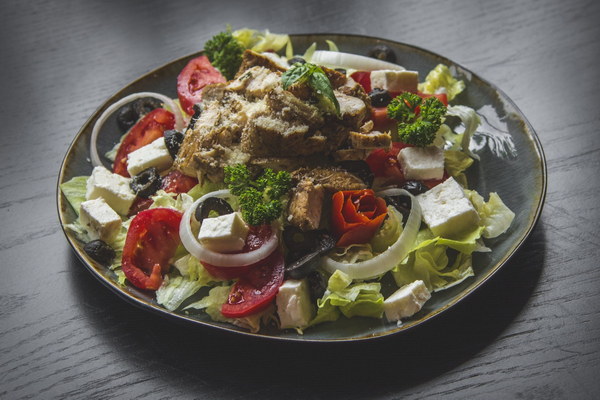Revitalize Your Health Discover the Wonders of Chinese Herbal Medicine and Diet Therapy
Introduction:
In the realm of traditional medicine, Chinese herbal medicine and diet therapy have been celebrated for their holistic approach to health and wellness. This article delves into the fascinating world of Chinese herbal medicine and diet therapy, exploring their principles, benefits, and how they can be integrated into your daily life.
Section 1: Understanding Chinese Herbal Medicine
Chinese herbal medicine is a branch of traditional Chinese medicine (TCM) that has been practiced for over 5,000 years. It involves the use of natural herbs to balance the body's energy, or Qi, and address specific health concerns. The following are some key aspects of Chinese herbal medicine:
1. Herbal Combinations: Unlike Western medicine, Chinese herbal medicine often uses combinations of herbs to achieve desired results. This is because different herbs can complement each other's properties, leading to a more effective treatment.
2. Targeting the Root Cause: Chinese herbal medicine focuses on addressing the root cause of an illness rather than just the symptoms. This approach aims to promote long-term health and well-being.
3. Personalized Treatment: Each patient is evaluated individually, taking into account their unique constitution, lifestyle, and health conditions. This ensures that the treatment plan is tailored to their specific needs.
Section 2: The Importance of Diet Therapy
In addition to herbal medicine, diet therapy plays a crucial role in TCM. This involves modifying one's diet to support overall health and address specific health concerns. Here are some key principles of diet therapy:
1. Balancing Yin and Yang: TCM believes that the balance of Yin (cool, slow, and inward) and Yang (hot, fast, and outward) is essential for good health. Diet therapy aims to maintain this balance by incorporating foods that complement these qualities.
2. Seasonal Eating: TCM emphasizes the importance of eating seasonally, as different seasons bring different climatic conditions that affect the body. Consuming foods that are in season helps the body adapt to these changes.
3. Nutritional Therapy: Certain foods are believed to have specific properties that can help address specific health concerns. For example, foods with a cooling nature are often recommended for those with heat-related conditions.
Section 3: Integrating Chinese Herbal Medicine and Diet Therapy into Your Life

Now that we understand the principles of Chinese herbal medicine and diet therapy, let's explore how you can incorporate them into your daily life:
1. Seek Professional Advice: Before starting any herbal or dietary regimen, it's important to consult with a qualified TCM practitioner. They can provide personalized advice based on your specific needs.
2. Herbal Remedies: Incorporate herbal remedies into your daily routine, such as tea or capsules. Popular herbal formulas include Ginseng for energy, Astragalus for immunity, and Ginger for digestion.
3. Dietary Adjustments: Modify your diet to include a variety of foods that align with TCM principles. For example, incorporate more leafy greens and nuts in your diet to balance your Yin and Yang.
4. Regular Check-ups: Schedule regular appointments with a TCM practitioner to monitor your progress and make any necessary adjustments to your treatment plan.
Conclusion:
Chinese herbal medicine and diet therapy offer a unique and effective approach to achieving and maintaining health and well-being. By understanding the principles behind these practices and incorporating them into your daily life, you can experience the benefits of a balanced and harmonious lifestyle. Embrace the wonders of Chinese herbal medicine and diet therapy, and embark on a journey towards optimal health and vitality.









